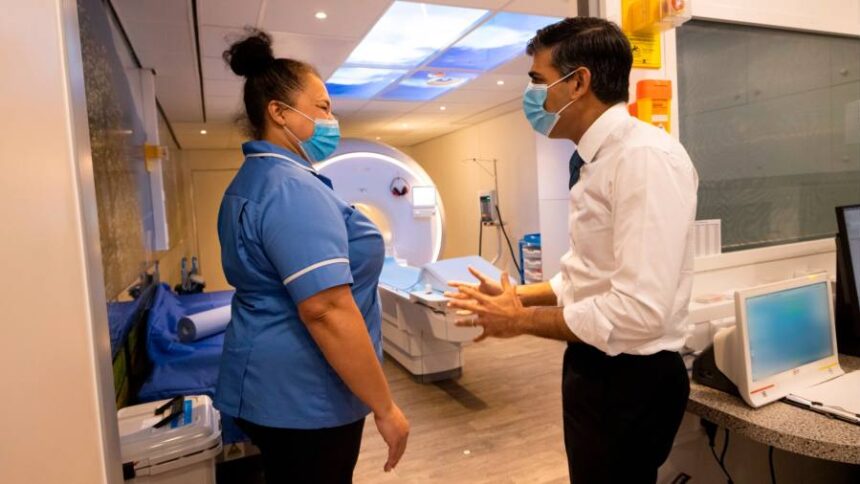Receive free National Health Service updates
We’ll send you a myFT Daily Digest email rounding up the latest National Health Service news every morning.
Private companies will be given a bigger role in running and funding diagnostic centres for the NHS as the UK government seeks to enlist independent providers to help clear record waiting lists for treatment.
The decision to expand the role of the private sector in centres that provide checks and scans is expected to be announced on Friday alongside publication of the final report of an “elective recovery task force”.
When Rishi Sunak established the task force last December the government said its recommendations would “help unlock spare capacity in the independent sector to bust the Covid-19 backlogs and reduce waiting times”.
The government has pledged to establish 160 community diagnostic centres (CDCs) by March 2025 and so far 108 have been set up, some run by the NHS and some in partnership with private providers. Only a handful of fully private centres have opened so far.
A principal benefit of an independently run model is that the CDCs’ assets are treated as “off balance sheet” and are outside the health department’s budget for buildings and equipment. The NHS has a severe shortage of capital with a maintenance backlog estimated at more than £10bn.
CDCs are seen by both the government and NHS leaders as one of their more successful recent initiatives, and are equally popular with the public and health professionals. The first centres were established in July 2021, to mitigate long treatment backlogs caused by the Covid pandemic.
In June, the health department said CDCs had delivered more than 4mn checks, tests and scans for patients across the country, “cutting waiting lists and giving patients quicker access to care”.
In February, Sunak visited a CDC in Oldham, Greater Manchester, which was developed in partnership with Alliance Medical, which specialises in medical imaging. The company has provided a range of diagnostic equipment including a PET-CT scanner, the first available to patients in the area.
Alliance Medical is one of the biggest private providers partnering with the NHS in running CDCs. The other, diagnostics specialist InHealth Group, has been working with the health service for three decades.
Sunak said CDCs such as Oldham were “making a major difference in cutting waiting lists” — one of the “five priorities” he has set for the government as he prepares for a general election expected next year.
On Wednesday the prime minister acknowledged that NHS waiting lists in England have increased since he took office last October, but he blamed a wave of industrial action in the health service for the backlog, which he acknowledged had risen to about 7.9mn for routine hospital treatment.
“We were actually making progress, we eliminated the number of two-year waiters . . . we practically eliminated the number of people waiting one-and-a-half years, and we were making progress on bringing the overall numbers down,” he told LBC radio.
He added that strikes were the “simple” reason waiting lists were rising — “it’s not because we’re not putting more money in”.








